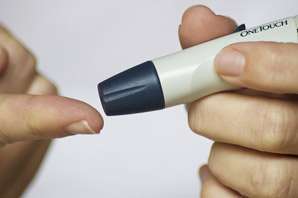How to Become a Certified Diabetes Educator – What you Need to Know
If the idea of helping people deal with their health conditions interests you, then you might consider becoming a certified diabetes educator.
This post provides a guide to a career as a diabetes educator, including the training and certification you will need to take, as well as the duties and responsibilities you will be expected to discharge to your clients.
Who is a Diabetes Educator?
Being a certified diabetes educator means you are a professional who possesses a comprehensive knowledge of the skills and experiences required to manage diabetes or pre-diabetes and provide education on diabetes prevention and management.
Here, the professional provides direct or indirect contribution to the management of patients and education about diabetes, and must have the required experience and qualification associated with the practice.
Diabetes Educator Educational Requirements
To become a diabetes educator, at least a Bachelor’s degree is required with concentrations in biology, chemistry, physics, psychology, algebra, computer science, statistics, and public speaking.
Usually, the training of a diabetes educator starts with working in a health related field, and then specializing as a certified educator.
Diabetes Educator Certifications
The most prominently required certification these experts pursue is the Certified Diabetes Educator (CDE) credential, and this requires that one meets the requirements set by the National Certification Board for Diabetic Educators (NCBDE), which is the institution that administers and maintains the CDE.
The eligibility requirements include:
- Being a healthcare professional like a nurse, dietician, pharmacist, occupational or physical therapist
- Having a professional experience with not less than 1000 hours of diabetes self-management education experience
- Being registered to a recognized professional regulatory body.
The training and certification also requires that the candidate complete a 15 hour education coursework in classes related to diabetes with two years’ experience working with diabetes patients.
Within the two years, the candidate should have an accumulated 1000 hours dedicated to Diabetes Self-Management Education (DSME), as well as to the American Association of Diabetes Educators (AADE).
Note that the DSME lays focus on seven key areas: taking medication, reducing health risks, healthy dietary habits, increasing physical activities, monitoring insulin levels, and developing problem solving skills, and learning to cope with the disease.
Institutions and Schools for Diabetes Educator Training
A couple of institutions and schools provide advanced degrees in diabetes education. Among them is:
- The Teachers College Columbia University; which offers a Master of Science degree in Diabetes Education and Management, requiring the completion of a 36 course points and an Integrative project in either full-time or part-time basis
- Conestoga College offers an Ontario College Graduate Certificate in Diabetes education with the assurance of providing a firm foundation in approaches relating to diabetes education
- Mohawk College also offers a diploma certificate in diabetes education, which is also accredited as an Ontario College Graduate Certificate, exposing students to various courses like: Introduction to patent education, diabetes field placement, and living with diabetes
- The Michener Institute of Education at UHN is recognized by the International Diabetes Federation to offer a Diabetes Educator Graduate Program which lasts for a period of seven months, and is led by certified diabetes educators.
Roles, Duties, and Responsibilities of Diabetes Educators
The duties and responsibilities of a certified diabetes educator include the following:
- He/she accesses the individual specific needs of his/her patients
- Identifies the diabetes goals of the individual
- The diabetes educator provides education on management of diabetes, advice and support to people living with diabetes by form of medication, dietary choice, and teachings on monitoring insulin levels, and preparing and distributing diabetes materials, including video tape reports and photos
- He/she ensures that proper documentation of all encounters with patients is done, and maintains a database, mailing list or phone book to facilitate education programs
- He/she also teach patients how to use appropriate instruments like insulin pumps and blood glucose meters
- He/she makes sure patients adhere to strict management plans.
Diabetes Educators Skills
The skills that will be of immense value to the diabetes educator and his/her patient is the ability to comprehend and sort out health information, analytical skills, ability to interpret scientific data to patients in everyday language, and good communication skills, since they will be dealing with individuals or a group of patients with a variety of behavioral tendencies, and an understanding of cultural differences.
Diabetes Educators Career Opportunities
Employment opportunities for diabetes educators are expected to increase by 19% between 2012 and 2022 according to reports from the U.S Bureau of Labor Statistics.
Diabetes educators work in a variety of environments, depending on the industry in which they work in. While some may opt for public health organizations, others may decide to work with non-profit organizations or in the private sector.
Certified diabetic educators typically work in offices and can be found in a number of settings, including hospitals, physician’s offices, clinics, health homes, and even in wellness programs, and often times spend a considerable amount of time outside the office in accredited and recognized diabetes education programs, giving talks, lectures, attending meetings, or even teaching classes in a classroom setting.
Diabetes Educators Salary Expectations
Experts in this sector may earn an average of $53,000 annually depending on location and the sector they are working in.













